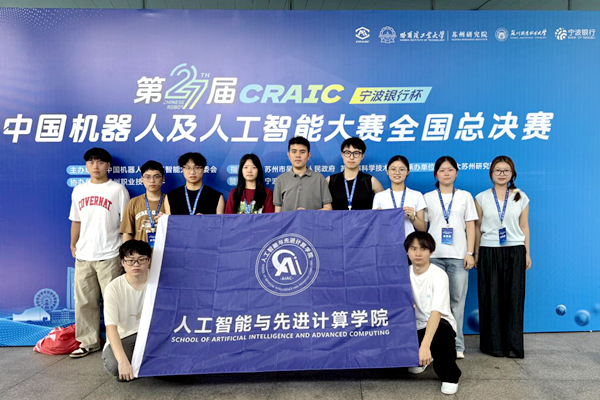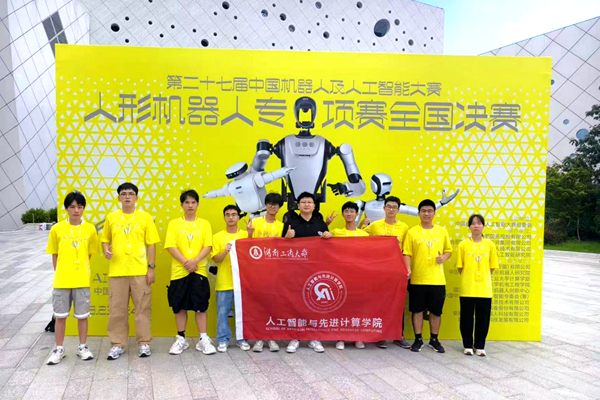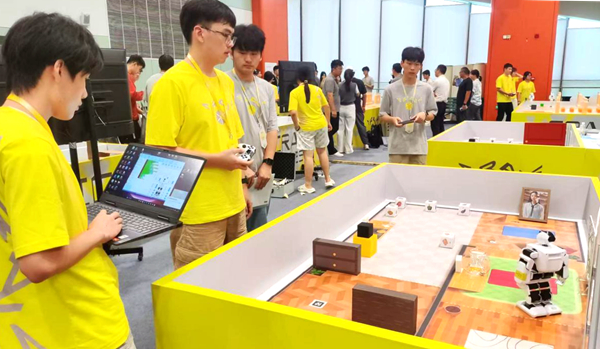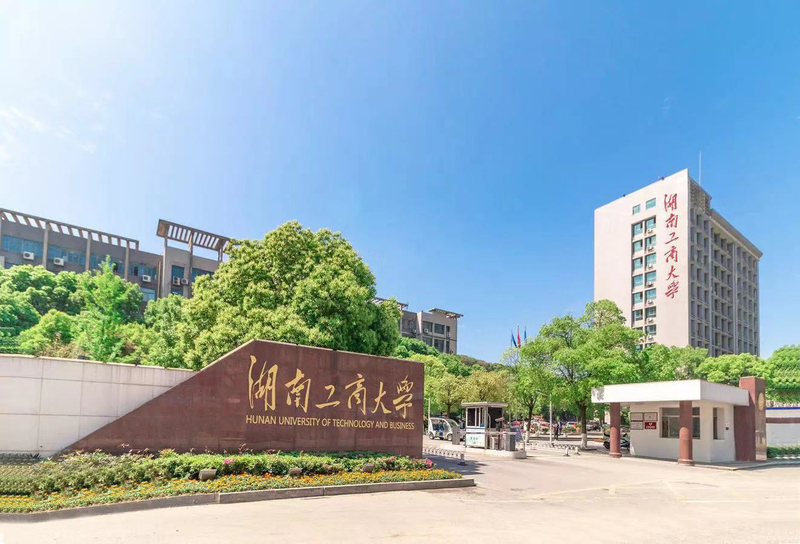HUTB Achieves Outstanding Results in 27th China Robotics and Artificial Intelligence Competition
2025-09-09
Recently, the national finals of the 27th China Robotics and Artificial Intelligence Competition (CRAIC) were held in Suzhou and Hefei. After a rigorous selection process through university, provincial, and national preliminary rounds, 32 teams from the university's 45 participating teams advanced to the national finals. Following intense competition, the teams ultimately secured 6 first prizes, 15 second prizes, and 7 third prizes at the national level. The total number of awards ranks among the top nationwide. In the Baidu Autonomous Driving competition category, the university stood out from over 1,700 teams, achieving fourth place nationally.

In recent years, HUTB has aligned itself with the strategic priorities of the country under the visionary leadership of the CPC HUTB Committee. By leveraging the National Center for Basic Science (Outstanding Research Group of the National Natural Science Foundation Committee) project, Xiangjiang Laboratory and other high-caliber scientific and technological innovation platforms, we have been vigorously developing new engineering programs. Also, we have been experimenting with talent development modes featuring "Digital Intelligence + (Artificial Intelligence +)" "Green+" and "Culture + Technology". By implementing programs such as the "Xiangjiang Academy - Hong Class", the "Academician Elite program", and the "Major + Micro-Major" programs, we focus on the fields of robotics and artificial intelligence. We integrate cutting-edge technologies and research projects into our talent development system and explore a "project-based practical + competition integration" teaching model. This approach has significantly fostered interdisciplinary and innovative talents. These outstanding competition results vividly demonstrate the effectiveness of the university's reforms and innovations in its talent cultivation model.

Since March of this year, the School of Artificial Intelligence and Advanced Computing has organized over 150 students from relevant schools. With support from major projects like the Humanoid Robot (Embodied AI) project at Xiangjiang Laboratory, a cross-school faculty guidance team was formed. Together with the students, they utilized weekends, evenings, holidays, and the summer vacation for intensive training over six months. They conducted in-depth research in robot control and AI algorithms, continuously innovating algorithmic models and optimizing various technical parameters. The participating teams overcame numerous challenges in 12 competition categories, including Simuro Soccer, Aelos Robot Challenge (OpenHarmony, Raspberry Pi), Roban Robot, Brain-Computer Interface and Emergency Robot, All-Terrain Cooperative Robot, Humanoid Robot, Micro Drone, Smart Pharmacy, Urban Road Recognition, Smart Retail, and Baidu Apollo Autonomous Driving. Through dedicated study and relentless effort, they progressed through university-level, provincial, and national preliminary rounds, ultimately attaining excellent results in the finals.

CRAIC is one of the significant events for promoting educational and teaching reforms and fostering innovative talent cultivation in universities. The event, hosted by the Chinese Association for Artificial Intelligence, adheres to the philosophy of "promoting research through the competition, promoting industrial production through research, and pooling collective wisdom to tackle challenges". The competition is designed to promote the integration of upstream and downstream value chain ecosystems, and to accelerate the mass production of humanoid robots by focusing on typical domestic and specialized application scenarios. Since its inception in 1999, the competition, now in its 27th iteration, has attracted over 1,000 universities and more than 460,000 participants nationwide. It has become the largest and most influential professional competition in the field of robotics and artificial intelligence in China.
(Reported by Jiang Lin and Peng Han from the School of Artificial Intelligence and Advanced Computing)









